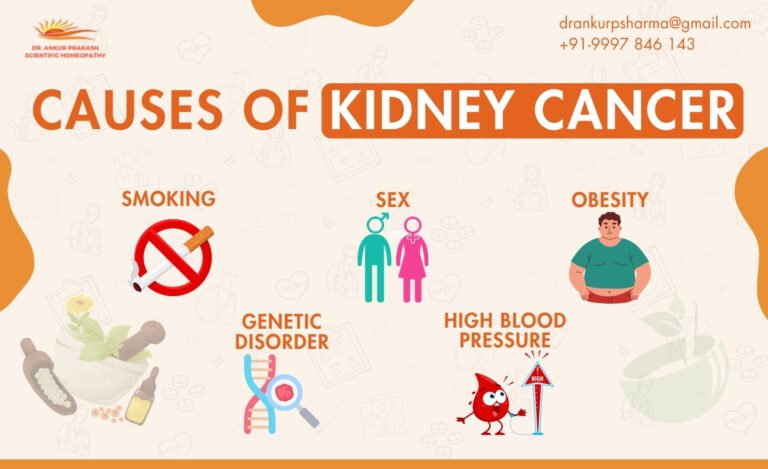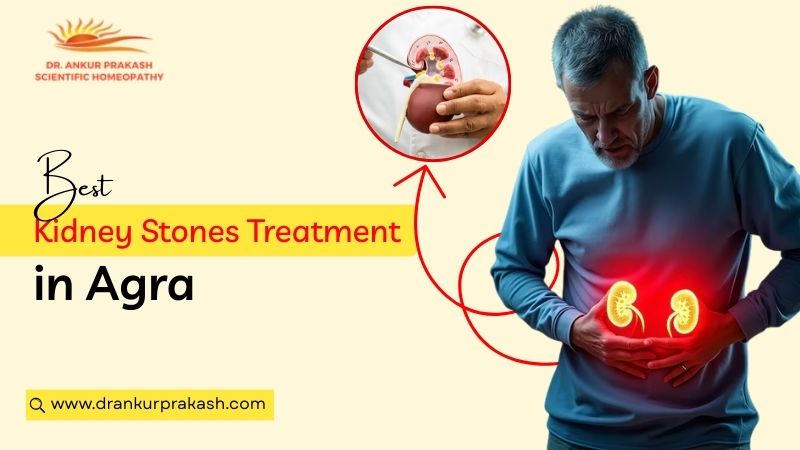What is Kidney Cancer?
The kidneys are two bean-shaped organs that remove waste from the blood and maintain fluid balance within the body. renal cancer is considered one of these neoplasms or types of tumors found within the renal. RCC is considered the most common form of kidney cancer, starting in cells lining the small tubes of the renal tubule within the renal. It can develop and metastasize if not diagnosed early, spreading to other parts of the body.
Symptoms of Kidney Cancer
Typically, kidney cancer has no symptoms until it is in the final stages. More often than not, when it does reach the final stages, the symptoms include:
1. Blood in the urine (hematuria). This may cause urine to appear pink, red, or even dark brown.
2. Pain or discomfort on the side or back that will not go away.
3. Mass or lump in the kidney area.
4. Unintentional and unexplained weight loss.
5. Generalized weakness or fatigue.
6. Recurrent fever without cause.
7. Decreased appetite.
The symptoms sometimes overlap with other diseases of the renal or urinary tract system. So, visiting a physician for a proper diagnosis is very essential.
Causes of Kidney Cancer
Actual causes of kidney cancer are not well established, but many known risk factors exist, which make them more likely to occur. Here are the major causes of and risk factors for kidney cancer:

Smoking: This is one of the most considerable risk factors. Tobacco smoke contains chemicals that damage renal cells to enhance the tendency to develop renal cancer.
Obesity: Excess body weight can impact various body hormones, thus causing renal cancer. There is evidence that obese people are prone to renal cell carcinoma, the most prevalent cause of renal cancer.
High Blood Pressure (Hypertension): People diagnosed with high blood pressure are at increased risk of developing renal cancer, though it is not clear if the risk is because of the high blood pressure itself or medications used to treat high blood pressure.
Family History: If close relatives have had renal cancer, the risk might be higher, suggesting a genetic component.
Genetic Disorder: There are some specific genetic syndromes, such as von Hippel-Lindau disease, hereditary papillary renal cell carcinoma, and Birt-Hogg-Dubé syndrome which increase susceptibility to renal cancer.
Sex: Additionally, kidney cancer affects more men than women. Though the exact etiology is not known; lifestyle and smoking exposure may have some contribution to the different incidences among the sexes. Older people are more likely to suffer from renal cancer. Two-thirds of renal cancer patients are aged above 50 years.
Chronic Kidney Disease: Individuals suffering from chronic kidney disease, especially those requiring dialysis for an extended period, are more prone to developing renal cancer.
Exposure to Certain Substances: Exposure to various chemicals, including asbestos and cadmium, in addition to some herbicides, has been proven to increase susceptibility to renal cancer.
Long-Term Intake of Pain Medications: Long-term usage of painkillers, particularly those administered over some time under no supervision by physicians, has been established to raise the danger of developing renal cancer.
With all these factors, the chances of getting kidney cancer are increased, but they do not guarantee that a person will get the disease. Instead, through proper medical check-ups and a healthy lifestyle adopted in combination with knowledge about potential risk factors, one might be able to detect the disease early and even avoid it altogether.
Kidney Cancer vs. Kidney Tumor
Even though the symptoms are similar between renal cancer and renal tumors, they’re not one and the same.
Kidney Cancer: Refers to malignant growth in the renal cells. Cancerous tumors have the potential to spread (metastasize) to other parts of the body and are hence dangerous if left untreated.
Kidney Tumor: Any abnormal mass in the renal is termed as kidney tumor. Tumors can either be benign or malignant. A benign renal tumor, such as an oncocytoma, does not spread and is less harmful, while malignant tumors, or renal cancers, are more dangerous.
How Common is Kidney Cancer?
Kidney cancer is one of the most common and highly widespread diseases worldwide. It is commonly diagnosed among adults, more so among men than women. Some of the risk factors include smoking, obesity, high blood pressure, and family history. High-risk patients should visit a doctor regularly to enable early detection.
Treatment for Kidney Cancer
The treatment for renal cancer usually depends on the stage and type of cancer. Standard treatments include surgery. Among them are the following:
For partial nephrectomy: A surgeon only removes the tumor.
For a radical nephrectomy: Just one surgical procedure eliminates the entire renal.
Targeted Therapy: It aims to use drugs that target specific cancer cells so that chemotherapy can be avoided and its side effects bypassed in most cases.
Immunotherapy: Helps make the body immune to detect and destroy cancerous cells.
Radiation Treatment: Performed if it is impossible to operate or to manage symptoms when the cancerous cells of a patient have spread.
Homeopathic Remedies for Kidney Cancer
Natural treatment for renal cell carcinoma, homeopathy is an approach aimed at supplementation of the patient’s immune response. It does not attack cancer cells but relieves symptoms, controls side effects from conventional interventions, and at times upgrades the patient’s general well-being. Preparations are chosen depending on the symptomatology, personality, and lifestyle of the patient to build up resistance in the body.
Ready to explore this holistic path? Consult with the best Homeopathy Doctor in India to find a treatment plan tailored to you, focusing on symptom relief, improved resilience, and enhanced quality of life.








